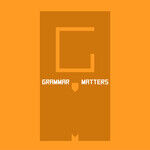Scott LaFee
Scott LaFee is a viviparous, omnivorous, longitudinally symmetrical carbon-based male biped and staff member of The San Diego Union-Tribune. Since 1992, he has been the chief writer for Quest, the paper's award-winning weekly science section, where he covers all manner of scientific news and features, from the inner workings of the brain to the physical nature of "nothingness" -- the stuff between stuff.
LaFee has written two syndicated columns for Creators. Archives of Eureka! can be found here. Or read Wellnews - new releases weekly.
He is married with two young sons, whom he coaches in soccer and swimming when not explaining why dead spiders' legs curl up (failed hydraulics) or how 8 feet of DNA can be squeezed into every cell (very carefully).
LaFee lives in La Mesa, Calif., with his hominid family and their several nonhuman pets: two tortoises, three fire-bellied toads, a rat, a rabbit and a dog named Dave.






